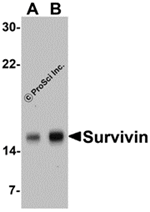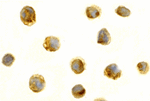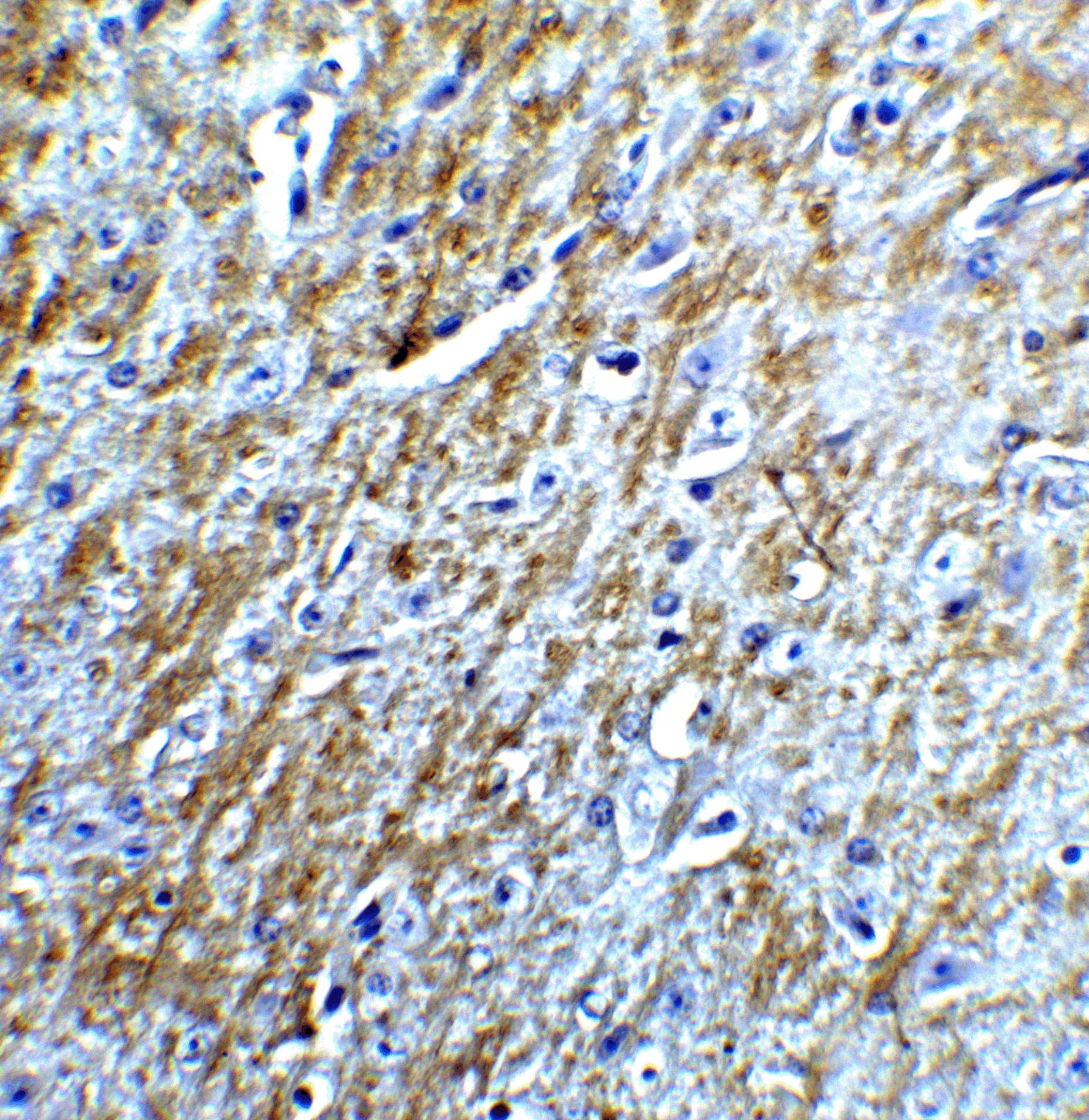Product Detail
Product NameSurvivin Antibody
Host SpeciesRabbit
ClonalityPolyclonal
PurificationAffinity chromatography purified via peptide column
ApplicationsELISA WB ICC
Species ReactivityHu
Immunogen TypePeptide
Immunogen DescRaised against a peptide corresponding to amino acids near the amino terminus of human survivin.
Target NameSurvivin
ConjugateUnconjugated
Other NamesTIAP
Accession NoSwiss-Prot:O15392
Gene ID:332
Uniprot
O15392
Gene ID
332;
Concentration1mg/ml
FormulationSupplied in PBS containing 0.02% sodium azide.
StorageCan be stored at -20˚C, stable for one year. As with all antibodies care should be taken to avoid repeated freeze thaw cycles. Antibodies should not be exposed to prolonged high temperatures.
Application Details
Predicted MW: 17 kd
Western blot analysis of Survivin in MOLT4 cell lysate with Survivin antibody at (A) 1 and (B) 2 ug/mL.
Immunocytochemistry of Survivin in Jurkat cells with Survivin antibody at 5 ug/mL.
Immunofluorescence of Survivin in mouse brain tissue with Survivin Antibodyat 20 μg/mL.
Immunohistochemistry of Survivin in mouse brain tissue with Survivin Antibodyat 5 μg/mL.
Apoptosis, or programmed cell death, is related to many diseases, such as cancer. Apoptosis is triggered by a variety of stimuli including members in the TNF family and prevented by the inhibitor of apoptosis (IAP) proteins. IAP proteins form a conserved gene family that binds to and inhibits cell death proteases. A novel IAP protein was recently identified and designated survivin, apoptosis inhibitor 4 (API4), and TIAP. Survivin/TIAP interacted with the processed form of caspase-3 and inhibited its proteolytic activity. Survivin/TIAP is predominantly expressed in tissues of embryos, transformed cell lines, and many human cancers and lymphomas.
If you have published an article using product 24092, please notify us so that we can cite your literature.
et al,A thiazole-derived oridonIn analogue exhibits antitumor activity by directly and allosterically InhibitIng STAT3. In J Biol Chem on 2019 Nov 15;by Shen X, Zhao L,et al..PMID:31594861
, (2019),
PMID:
31594861






 Yes
Yes



